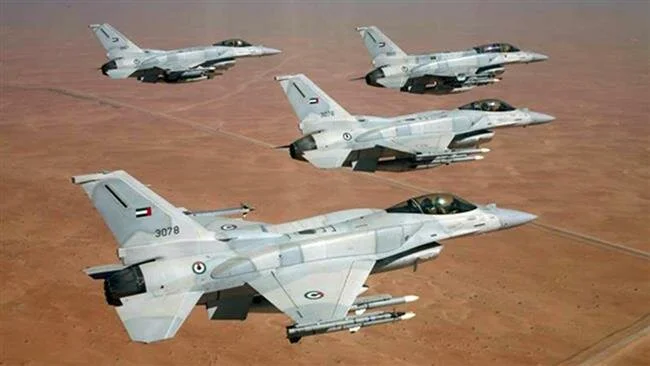The United Arab Emirates provides a 21st century case-study in how to build a national defense capability. Dubbed “Little Sparta” by former Secretary of Defense Jim Mattis, its growing military presence in the Middle East and Africa are the result of years of dedicated investment and demonstrate ambitions surpassing the federation’s short history.
What if Saudi Arabia were Poor?
America benefits from Saudi Arabia’s wealth. By virtue of being rich in oil reserves, and able to spend the proceeds from that oil however its royal family sees fit, the Kingdom of Saudi Arabia has great sway in the Middle East. Instances of the Kingdom’s impact include the multinational coalition it currently leads against the Shi’a Houthi regime in Yemen and its continuing power within the Organization of Petroleum Exporting Countries (OPEC).Saudi Arabia’s wealth is important to those interested in US foreign policy because America is an unofficial guarantor of Saudi sovereignty, tacitly giving assurance that it will protect the Kingdom from invasion. It is also important because the US leverages its relationship with Saudi Arabia to implement its policy in the region. From the US’ perspective, an affluent Saudi Arabia helps America get what it wants.
End the War by Saving a Unified Yemen
It is easy to see Yemen’s unification as a mistake. Whereas the union of East and West Germany helped build one of the world’s foremost powers, the unification of Yemen has, if anything, exacerbated regional divisions. The reasons, however, lay within the framework of that very unification. The unification of Yemen was never truly completed, and reconciliation after the 1994 Civil War has never being genuinely been attempted; this is the source of the persistent divide between North and South Yemen.
Yemen at a Crossroads: Four Scenarios
Historically a commercial crossroad, Yemen sits at the junction of three continents—Europe, Asia, and Africa—and three major maritime expanses—the Indian Ocean, as well as the Red and Mediterranean Seas. Previously, it was a zone for exchange and mobility, channeling international trade, financial transactions, and human migration. Recognized by Roman geographers as Arabia Felix, Yemen was once known for its waterfalls, fruitful land, trade, and civilization. In the past few decades, Yemen has been increasingly recognized as a fragile state on the brink of failure. While the recent war has brought Yemen closer to failure, the divided country is resiliently ahead of total collapse, but remains plagued by a nexus of economic, political, and security challenges.
A New 5-Point Plan for Stability in the Middle East
The West needs a new plan for curbing violence and increasing stability and prosperity in the Middle East. We have decades of experience from which we can learn in order to map out more effective future strategies. This article details a new 5-point plan for promoting peace, prosperity, and stability in the Middle East.The West needs a new plan for curbing violence and increasing stability and prosperity in the Middle East. We have decades of experience from which we can learn in order to map out more effective future strategies. This article details a new 5-point plan for promoting peace, prosperity, and stability in the Middle East.
Saudi Arabia's Wedge
The United States’ favorite “ally without portfolio,” Saudi Arabia, reacted coolly to recent news of the US-Iranian nuclear deal, with a combination of official tepid praise and private indignation. Many wondered at the time what the long term fallout from the deal might be and it looks like Saudi Arabia is finally giving the world their answer: they aren’t giving up on wrecking the deal just yet.
Why Saudi Arabia May Be the Next Syria
The Islamic State group (ISIS) is running up against a wall. As national coalitions take a larger role in the fight against ISIS, the group will become increasingly unable to operate on as large a scale as it has in years past, and it will be pushed out of its previously held territories – its decline may take years or even decades, but it will ultimately decline. But although ISIS may deplete its resources and feel increasing pressure from the international community, its members will not simply disappear as the group loses momentum.
Why ISIS’ Forerunners Lost
Whatever the claims of certain media outlets, the organisation referred to variously as ‘Islamic State in Syria’ (ISIS), or simply ‘Islamic State’ is hardly a new phenomenon in Middle Eastern history. Islam has been beset by violent schismatic and revivalist movements before, some conquering large territories and proclaiming ‘states,’ only to implode under their own internal contradictions or be crushed militarily by more established Muslim rulers. Perhaps the starkest example of this was the very entity originating the uncompromising brand of Sunni fundamentalism espoused by al Qaeda and ISIS, the Wahhabi-Saudi emirate of the eighteenth and early nineteenth centuries, which engaged the established powers in the Middle East in just the kind of ‘generational struggle’ today’s biens pensants say will be needed to defeat ISIS, a struggle having repercussions for the region today. It lost, and many of the reasons why suggest ISIS will lose too.









